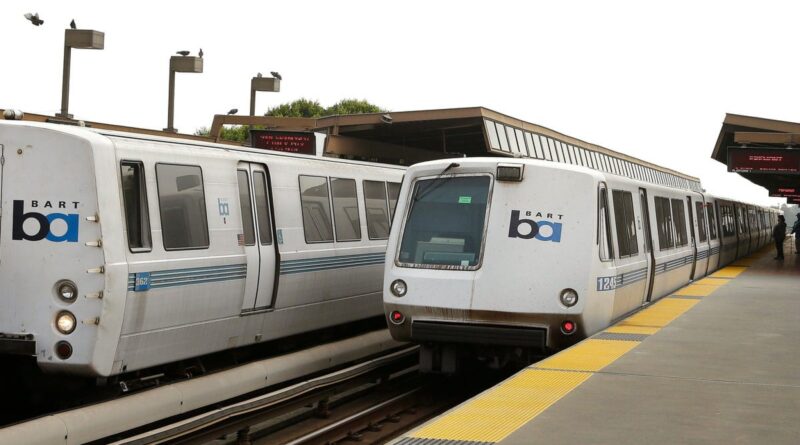A Heat Wave Derailed a Train Outside San Francisco

Our existing infrastructure isn’t built to withstand climate change, and heat waves have started to drive wedges into the cracks in the system. Triple-digit temperatures caused a train to derail near San Francisco last week, according to an internal evaluation by Bay Area Rapid Transit (BART).
About 50 people had to be evacuated from the derailed train in Concord, California on Tuesday. No one was severely hurt, but some reported minor injuries, according to the Los Angeles Times.
“Our initial assessment is that heat played the main role in the partial derailment by causing a curve in the rail,” said a BART press statement from Wednesday.
A heat wave brought temperatures high above average to the Bay Area last week. San Jose hit 102 degrees on June 21st, a daily record. Parts of Oakland and Concord also experienced record highs above 100 degrees. It was amid this weather that the BART derailed.
Sitting the in direct sun, the train tracks became much hotter than the air. The rail reached about 140 degrees Fahrenheit, which is 25 degrees hotter than its maximum operating temperature, a BART spokesperson told the San Francisco Chronicle.
G/O Media may get a commission
That excess heat caused a misalignment in the rail, which BART officials said can occur anytime the track exceeds its baseline temp by 20 degrees. The Chronicle reported that the BART has derailed three times previously, but that this was the first reported instance of heat causing the issue.
However, this isn’t the first time high heat has caused a notable transit failure in the region. Last year, a different June heat wave in the Pacific Northwest melted the cables that power Portland’s MAX light rail in Oregon. Just a couple of weeks ago, roads in Minnesota started buckling under high heat conditions. Larger scale issues, like stressed electrical grids and power outages can also pop up with extreme heat. Human-caused climate change is leading to more frequent, more intense, earlier, and longer heatwaves across the U.S., according to the EPA.

